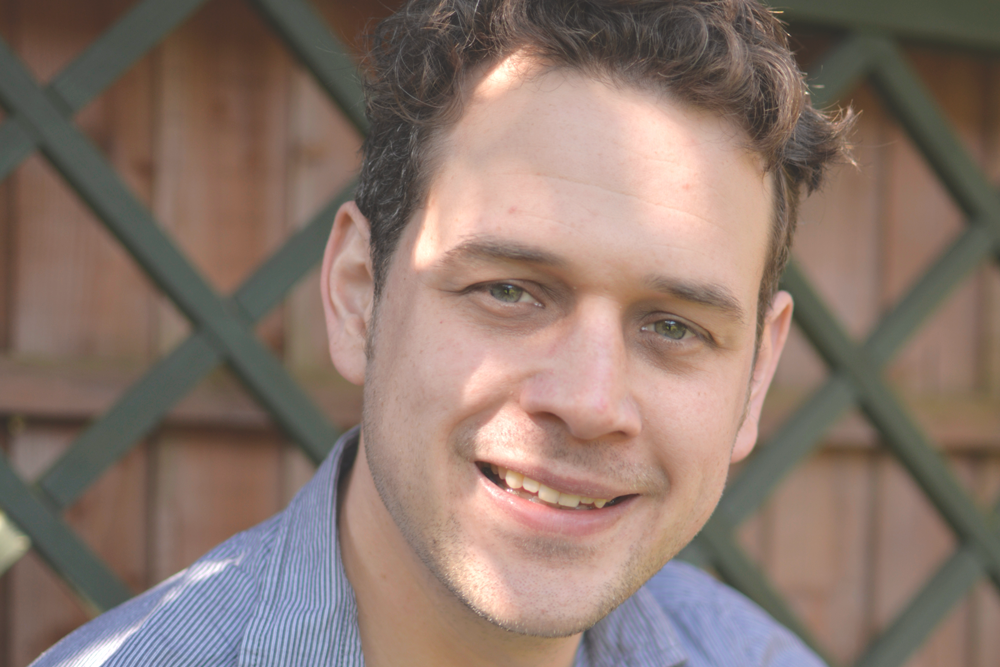
The first time Luke Kennard was interviewed in a newspaper about his poetry, his little brother told him that all of his friends now assumed he was a millionaire. Given that The Guardian recently called Kennard “an overachieving poet” in a glowing review of his novel, presumably he is positively swimming in tenners. I ask him how it feels to be described so hyperbolically by a national newspaper. Kennard, who sometimes sounds like Hugh Grant doing an impression of Hugh Grant, finds it amusing. But, as with a lot of publicity, he says, “It doesn't necessarily sell any books. It just sort of makes people think that you're selling books.”
If true, this is a shame, as Kennard’s debut novel The Transition deserves to fly off shelves. It is a delightful spider of a book – he says that about eight big themes run through it. Karl and Genevieve, once teenage sweethearts, are now adults, and not just failing to pay the bills but on the very verge of eviction. They, like today's twenty and thirtysomethings (the novel is set in the near future), are totally at the mercy of their landlord. After Karl becomes entangled in online fraud and wants to eschew jail time, they have little option but to sign up to mysterious mentoring scheme The Transition.
“Love is, in a way, a form of resistance"
Ostensibly a sickeningly aspirational programme designed to help couples onto the property ladder by teaching them about responsibility, budgeting and self-actualisation, The Transition soon becomes a morbid obsession to Karl. He begins to discover, through the help of former pupils of the scheme, that the programme may have sinister and hidden motives. Slowly, it drives him and his psychologically vulnerable wife (Genevieve) apart, sucking her into a void that Karl is terrified he will not be able to bring her back from. The novel is, in Kennard's words, something of a “capitalist love story”.
If a book could be said to be dripping with delicious phrases and images, The Transition drips and doesn't stop dripping until you've snapped it shut. As is the case with his poetry (“I'm so modest I've been handing out / someone else's business cards for the past five years”), Kennard has a way of stopping you short, making you imagine the phrase he has slipped into the letterbox of your mind, and then making you scoff in delight. Given that we are in almost every social interaction trying to make old or new acquaintances laugh in a search for common ground, I ask Kennard why more novels aren't concerned with being funny. “I think there's maybe a sense that humour within fiction means that something isn't Oscar-worthy,” he says. “I really value humour within fiction and within poetry. I think it's the only way I know how to write.”
"Humour punctures the divide between author and reader"
Dialogue, too, he recognises, is one of his strengths. People in The Transition don't talk like characters, they talk like people – and, like humour puncturing the divide between author and reader, this means something. It is memorable. And it assures you that with Kennard at the helm you might just be in safe hands.
Heading up The Transition, however, are a far less trustworthy duo, Janna and Stu. Through these young, cloyingly patronising professionals, Kennard gives a mouthpiece to a vision he calls the English Tory Dream (as opposed to the American Dream). “At some point it was instilled in you that money isn't important,” Janna tells Karl and Genevieve at one point, after she has urged the couple to quit their jobs. Needling away at them, she and Stu serve to gently but firmly denigrate every facet of Karl and Genevieve's once-happy lives, from their low-paid jobs to their dental hygiene. They embody a major source of frustration for Kennard: the disdain, expressed in opinion piece after opinion piece, towards a generation of feckless “millennials”.
To the author – a self-confessed “old, greying millennial” at the age of 35 – this attitude is infuriating. “Those articles really make steam come out of my ears,” he says. “You can dress this up any way you want. It's basically just about house prices. It's not about work ethic. Because that's such bullshit. We're not choosing to live like this.” Kennard is prone to laughing enthusiastically and infectiously every few sentences, whether or not anything funny has happened.
“It is obscene, what has happened to property,” he says. “It's just as well that we're not going to retire. By the time our generation reaches retirement age, retirement age will have gone up to about 75. I genuinely do have a kind of lower-middle-class anger about that.” This bleak vision of the future – it would be unfair to call it pessimistic, as it seems more than plausible – courses through the novel. As Karl tries to overthrow The Transition, stranded from Genevieve, frantic and alone, he is fighting against the status quo itself. And, as Kennard says, anyone trying to mount a charge against the capitalist system is pitting themselves against an unbeatable adversary: “You can only succeed on its terms so you're bound to fail, especially if you try to resist.”
There is, however, a chink in the armour. Karl can lose everything – he is happy to accept that he should by rights be cleaning toilets, not writing online essays for students – but he cannot lose Genevieve. At the heart of this portrait of our creepy and suffocating future is a love story painted with real tenderness. Love, as Kennard says, may be economically inadvisable in the extreme, but that will never stop us falling for it. In The Transition, it is the green shoot that finds its way up through the polished marble floor tiles. “This is going to sound extremely sentimental,” Kennard says, “but love is in a way a form of resistance.”
The Transition is out now (Fourth Estate).